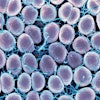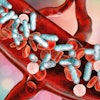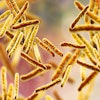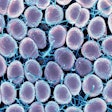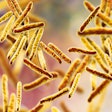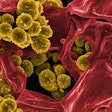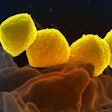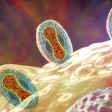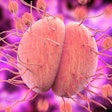
The U.S. Pharmacopoeia (USP) has published draft guidelines on using a synthetic alternative to reagents derived from horseshoe crabs, advancing efforts to provide an alternative way of performing endotoxin testing.
Limulus amebocyte lysate (LAL), an extract of blood cells sourced from the Atlantic horseshoe crab (Limulus polyphemus), is currently a critical component in the endotoxin tests that labs run to ensure the sterility of medicines and medical equipment. However, the industry has come under pressure to switch to alternatives, as concerns about the impact of sourcing LAL from horseshoe crabs and the birds that feed on them have intensified.
The USP, a nonprofit, publishes reference standards that labs follow when running a range of tests, including checks for bacterial endotoxins using LAL. The lack of a USP alternative to the LAL-based process is one impediment to transitioning away from the use of horseshoe crab blood in endotoxin testing.
As part of its commitment to moving away from animal-derived materials, the USP has proposed changing its standards to support the use of synthetic alternatives to LAL. The proposed guidelines describe the use of a reagent containing the recombinant Factor C protein, or a recombinant cascade reagent containing recombinant Factor C, recombinant Factor B, and a recombinant proclotting enzyme.
In the guidelines, the USP provides methods for using the synthetic reagents and steps for verifying their use for a specific product. Manufacturers of new biopharmaceuticals can use the guidelines without first showing comparability to the current method using LAL, but producers of existing products who want to switch to animal-free reagents need to show comparability, the USP said. Switching from LAL is optional.
The USP is independent of the U.S. Food and Drug Administration (FDA). The FDA and other regulatory agencies may require additional data from manufacturers. The European and Japanese equivalents of the USP have published similar methods for alternatives to LAL. The USP proposal is open for comment from November 1, 2023, to January 31, 2024.
